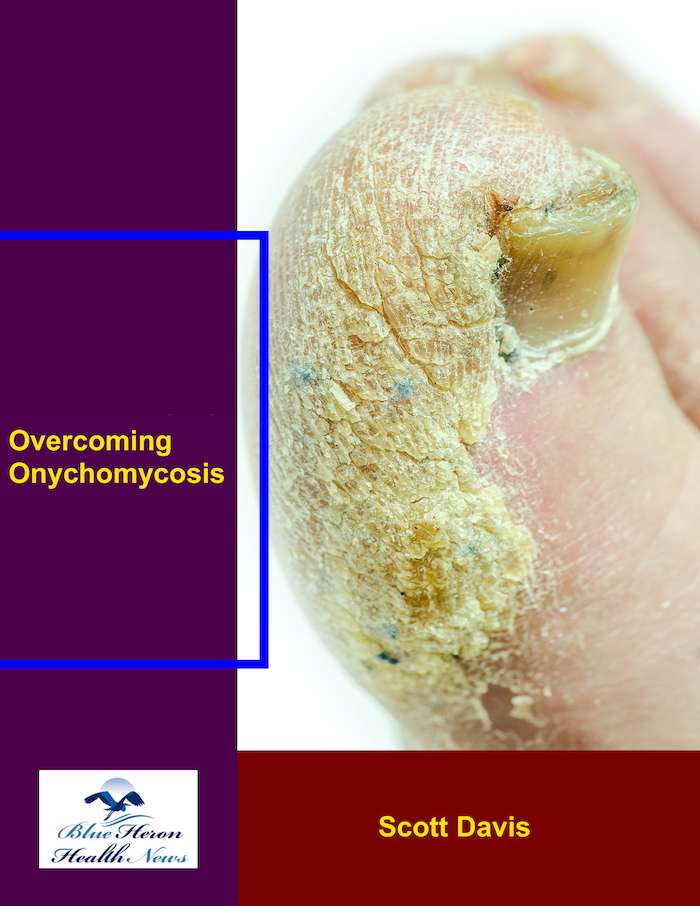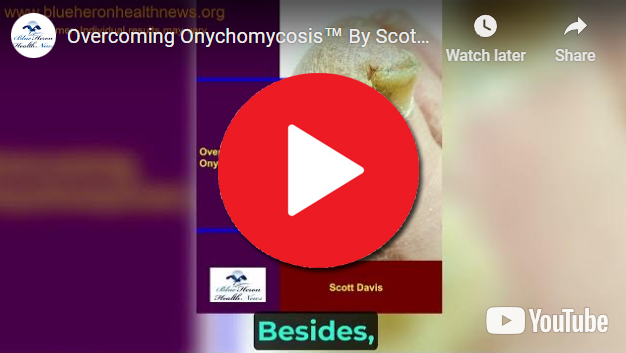
Overcoming Onychomycosis™ By Scott Davis It is a simple, natural, and all-in-one solution for onychomycosis. The program can help you to treat your nail fungus naturally. Once you follow this program, you do not need to spend on expensive treatments to prevent a recurrence. In brief, you can have a proven solution for your chronic nail fungus. Besides, the program is easy to follow, and most users find it effective against onychomycosis.
How can dietary changes help with hemorrhoid healing?
Dietary changes can play a significant role in both preventing and healing hemorrhoids by promoting healthy digestion, softening stools, and reducing inflammation. Hemorrhoids are swollen veins in the rectal area, and they can be caused or worsened by straining during bowel movements, constipation, and poor blood circulation. By adjusting your diet, you can alleviate pressure on the hemorrhoidal veins and encourage healing. Here are key dietary changes to help with hemorrhoid healing:
1. Increase Fiber Intake
- Fiber helps to soften stools and makes bowel movements easier, reducing the need to strain. Straining is one of the main causes of hemorrhoids and can worsen existing hemorrhoids.
- Include soluble fiber (found in oats, apples, and beans) and insoluble fiber (found in whole grains, leafy vegetables, and wheat bran) to promote regular bowel movements and avoid constipation.
- Aim for at least 25-30 grams of fiber per day, but gradually increase your fiber intake to avoid bloating or gas. A sudden increase in fiber can cause digestive discomfort.
- Foods rich in fiber include:
- Fruits: Apples, pears, berries, bananas
- Vegetables: Leafy greens (spinach, kale), carrots, broccoli
- Whole Grains: Brown rice, quinoa, whole wheat bread, oats
- Legumes: Lentils, chickpeas, black beans
- Nuts and seeds: Almonds, flaxseeds, chia seeds
2. Stay Hydrated
- Drinking plenty of water is crucial when increasing fiber intake. Fiber needs water to expand and help move waste through the digestive system smoothly. Without enough water, fiber can lead to bloating or worsen constipation.
- Aim to drink 6-8 cups of water per day to keep stools soft and to promote proper bowel function. Herbal teas (e.g., ginger or peppermint tea) can also be hydrating and soothing for the digestive system.
3. Avoid Low-Fiber Foods
- Highly processed foods that are low in fiber, such as white bread, refined cereals, and processed snacks, can contribute to constipation and make hemorrhoid symptoms worse.
- Minimize the consumption of foods such as:
- White rice
- White pasta
- Fried or fatty foods
- Fast food
- Sugary snacks and desserts
4. Incorporate Healthy Fats
- Healthy fats can help lubricate the intestines, making it easier to pass stools without straining. Incorporate healthy fats into your diet from:
- Olive oil
- Avocados
- Nuts and seeds
- Fatty fish (such as salmon and mackerel)
- Omega-3 fatty acids from fatty fish and seeds may also help reduce inflammation, which can help alleviate discomfort from hemorrhoids.
5. Limit Spicy Foods and Caffeine
- Spicy foods or caffeinated beverages can irritate the digestive system and exacerbate hemorrhoid symptoms, leading to increased discomfort or even diarrhea. While these foods do not directly cause hemorrhoids, they may increase inflammation or aggravate existing symptoms.
- Consider reducing spicy foods, alcohol, and caffeine (coffee, soda) to see if symptoms improve.
6. Eat Probiotic-Rich Foods
- Probiotics are beneficial bacteria that help support a healthy gut microbiome and improve digestion. A balanced gut can reduce the risk of constipation and help keep bowel movements regular, which is essential for hemorrhoid healing.
- Foods rich in probiotics include:
- Yogurt with live cultures
- Kefir
- Kimchi
- Sauerkraut
- Miso
- Kombucha
7. Consume Anti-Inflammatory Foods
- Chronic inflammation can worsen the pain and swelling associated with hemorrhoids. Incorporating foods that have natural anti-inflammatory properties can help reduce symptoms and promote healing.
- Foods with anti-inflammatory effects include:
- Turmeric (curcumin) and ginger: Both have potent anti-inflammatory properties and can soothe the digestive system.
- Berries (strawberries, blueberries, raspberries): High in antioxidants, which help reduce inflammation.
- Leafy greens (spinach, kale, collard greens): Rich in vitamins and minerals that promote healing.
8. Avoid Excessive Salt
- High salt intake can cause the body to retain water, leading to swelling and potentially increasing discomfort in hemorrhoids. Reducing processed and salty foods can help minimize swelling.
- Opt for fresh, unprocessed foods and use herbs and spices for flavoring instead of salt.
9. Avoid Alcohol and Irritating Beverages
- Alcohol can lead to dehydration, which can worsen constipation and strain during bowel movements. Additionally, alcohol can irritate the digestive system and lead to increased swelling and inflammation.
- Limit alcohol intake and avoid sugary, caffeinated, or carbonated beverages that can irritate the stomach and digestive system.
Summary of Key Dietary Changes:
- Increase fiber from fruits, vegetables, whole grains, legumes, and seeds.
- Stay hydrated by drinking plenty of water.
- Avoid low-fiber foods, processed foods, and refined grains.
- Incorporate healthy fats like olive oil, avocados, and fatty fish.
- Limit spicy foods, caffeine, and alcohol to reduce irritation.
- Include probiotic-rich foods to support gut health.
- Add anti-inflammatory foods like turmeric, ginger, and berries to reduce swelling.
By focusing on these dietary changes, you can help prevent constipation, reduce strain, and promote healing, all of which can alleviate hemorrhoid symptoms and encourage faster recovery. Along with these changes, it’s important to engage in regular physical activity and avoid prolonged sitting, which can contribute to hemorrhoid development.
Avoiding spicy foods can provide several benefits for individuals with hemorrhoids, particularly in terms of reducing discomfort, irritation, and inflammation. While spicy foods do not directly cause hemorrhoids, they can exacerbate symptoms and make the condition more difficult to manage. Here are the key benefits of avoiding spicy foods for hemorrhoid sufferers:
1. Reduced Irritation of the Digestive Tract
- Spicy foods, especially those containing capsaicin (the compound responsible for the heat in chili peppers), can irritate the digestive tract, including the esophagus, stomach, and rectum. This irritation can make the already sensitive area of the anus and rectum feel more inflamed, leading to pain and discomfort.
- For hemorrhoid sufferers, this irritation can cause burning sensations or stinging during or after bowel movements, making it harder to manage the condition.
2. Reduced Risk of Diarrhea
- Spicy foods can sometimes trigger diarrhea or cause the digestive system to become more sensitive, which can increase the frequency and urgency of bowel movements. This can put additional strain on the rectal veins, potentially worsening hemorrhoid symptoms.
- Diarrhea can also lead to frequent wiping, which can irritate or damage the hemorrhoidal tissue, further exacerbating the condition.
3. Prevention of Anal Fissures and Pain
- Spicy foods can lead to increased bowel movement urgency or discomfort, potentially causing individuals to strain or rush during bowel movements. This can put pressure on the hemorrhoidal veins, leading to increased pain, swelling, or even anal fissures (small tears in the skin around the anus), which can make hemorrhoid symptoms worse.
- By avoiding spicy foods, individuals can reduce the likelihood of such issues, making bowel movements more comfortable and less damaging to the rectal area.
4. Improved Stool Consistency
- Spicy foods can sometimes cause gastrointestinal distress, leading to looser stools or increased bowel urgency. Loose stools are harder to control and can cause more friction and irritation in the anal region, potentially aggravating hemorrhoids.
- By avoiding spicy foods, individuals may experience better stool consistency, which can prevent straining and help maintain the integrity of hemorrhoidal veins.
5. Reduced Acid Reflux and Gastrointestinal Issues
- Spicy foods can sometimes worsen acid reflux or cause stomach irritation. When acid reflux occurs, it can lead to heartburn and discomfort, which might exacerbate abdominal discomfort. Since there’s often a connection between constipation, gastric discomfort, and hemorrhoids, reducing spicy food intake can help improve overall digestive health and prevent the strain that exacerbates hemorrhoid symptoms.
- Additionally, spicy foods can cause gas or bloating, further irritating the digestive system and increasing discomfort for hemorrhoid sufferers.
6. Prevention of Inflammation
- Spicy foods can sometimes promote inflammation in the digestive system. Since hemorrhoids themselves are essentially inflamed veins, consuming foods that trigger or increase overall inflammation can make hemorrhoidal swelling and pain worse.
- Reducing spicy food intake can help lower overall body inflammation, which may, in turn, reduce swelling and discomfort associated with hemorrhoids.
7. Comfort During Bowel Movements
- Since hemorrhoids involve swollen veins in the rectum, any irritation in the digestive tract—such as from spicy foods—can lead to increased pain during bowel movements. The sensation of burning or stinging that accompanies spicy foods can aggravate an already sensitive anal area.
- By avoiding spicy foods, individuals may experience a more comfortable and pain-free bowel movement experience, which is particularly important for healing and managing hemorrhoids.
Summary of Benefits:
- Reduced digestive irritation in the rectum and anus.
- Decreased risk of diarrhea, which can worsen hemorrhoid symptoms.
- Prevention of anal fissures and reducing strain during bowel movements.
- Improved stool consistency, which reduces irritation and prevents straining.
- Less acid reflux or gastrointestinal distress that can impact overall comfort.
- Reduced inflammation in the body, helping alleviate hemorrhoid swelling.
- Increased comfort during bowel movements and faster healing of hemorrhoidal tissue.
By avoiding spicy foods, hemorrhoid sufferers can help create a less irritating and more comfortable environment for the digestive system and the rectal area, improving the healing process and reducing the chances of symptom flare-ups.
Overcoming Onychomycosis™ By Scott Davis It is a simple, natural, and all-in-one solution for onychomycosis. The program can help you to treat your nail fungus naturally. Once you follow this program, you do not need to spend on expensive treatments to prevent a recurrence. In brief, you can have a proven solution for your chronic nail fungus. Besides, the program is easy to follow, and most users find it effective against onychomycosis.
